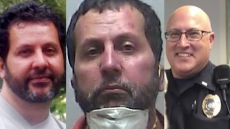SURREY, B.C. — British Columbia is increasing the number of MRI exams that will be done across the province.
Health Minister Adrian Dix says 37,000 more MRIs will be done by this time next year in the public health-care system.
The province says 188,000 of the exams — which use magnets and radio waves to make a detailed picture of specific parts of the body — are slated to be performed this year at hospitals and clinics in the public system.
Dix says $11 million is being made available to add resources and capacity, allowing for the completion of 225,000 MRIs in 2018-19.
He says that is nearly a 20 per cent increase, which describes as a "bold step" towards deliver on a NDP promise to restore health services and cut waiting lists.
The Health Ministry says overall wait times for the exams exceed 41 days for half of all patients, with 10 per cent waiting more than 199 days.
"Wait times are simply too long in B.C., in part due to volumes that are 35 to 40 per cent less than other provinces," Dix says.
Ministry data shows that by the end of last year, B.C.'s per capita rate for a scan was 37 per 1,000 of population, far below the national average of 55.5 per 1,000.
The increased targets will be achieved by operating existing machines longer to accommodate more patients, installing already planned machines, and by adding more of them to the public health-care system, the ministry says in a news release.
Centralized regional registries will also be created to weed out duplicate referrals and appointments, prevent wasted operating time and offer patients the earliest appointment available.
Magnetic resonance imaging is one of the tools used to diagnose a number of medical conditions, including abnormalities of the brain, as well as tumours, cysts and soft-tissue injuries, the ministry says.
The government's announcement marks a shift in its approach, said the BC Health Coalition, a network of individuals and organizations that campaigns for improvements to public health care.
"For too long B.C. has allowed public MRI wait times to grow while allowing a market for private MRI clinics to flourish," Edith MacHattie, the coalition's co-chair, said in a news release.
MacHattie said more money spent to increase the number of MRIs that can be done in the public health system will also help reduce waits for surgery.
"An accurate diagnosis is the first step to ensure patients receive the care they need to get well," says MacHattie. "Increasing the province's ability to provide timely public MRI scans will play an important role in driving down surgical wait times."



